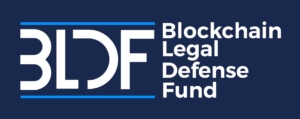Do Kwon Pleads Not Guilty
Do Hyeong “Do” Kwon, the co-founder of Terraform Labs, has officially pleaded not guilty to U.S. fraud charges about the $40 billion collapse of the TerraUSD (UST) and Luna tokens. Extradited from Montenegro earlier this year, Kwon was arraigned in federal court in New York, setting the stage for one of the most consequential crypto fraud trials since the sentencing of Sam Bankman-Fried.
The indictment accuses Kwon of defrauding investors by knowingly misleading them about the stability of TerraUSD, an algorithmic stablecoin that imploded in 2022. Prosecutors allege that Kwon misrepresented the mechanisms backing UST and failed to disclose material risks as the project grew.
Kwon’s defense team has argued that the collapse was the result of market volatility, not criminal intent. They maintain that Terraform Labs acted transparently and in good faith, and that investors understood the risks inherent in algorithmic models.
The case raises novel legal questions: Can algorithmic design flaws be prosecuted as fraud? Are founders personally liable for the consequences of decentralized mechanisms? And how far does U.S. jurisdiction extend over non-U.S. developers?
Legal experts suggest this case may hinge on internal communications, investor marketing materials, and evidence of intent. If prosecutors can prove Kwon knowingly lied or concealed risk, they may have a path to conviction. If not, the defense may successfully frame the collapse as a cautionary tale of speculative finance, not criminal behavior.
The implications of this trial are enormous. A conviction would set a precedent for holding crypto founders personally responsible for project failures. An acquittal could reinforce the legal gray zone many DeFi builders currently occupy.
From a defense strategy perspective, the case highlights the importance of legal hygiene: founders should document risk disclosures, avoid public overpromises, and ensure proper corporate governance, even in decentralized systems.
The global dimension of this case is also critical. Kwon is facing charges in South Korea as well, and additional civil suits from U.S. and international investors. The coordination between jurisdictions signals that regulators worldwide are uniting to enforce investor protections, regardless of where a project is based.
Kwon remains under house arrest, subject to court supervision, while his legal team prepares for a lengthy battle. The outcome could reshape how accountability is defined in the crypto world.






Leave a Reply
Want to join the discussion?Feel free to contribute!